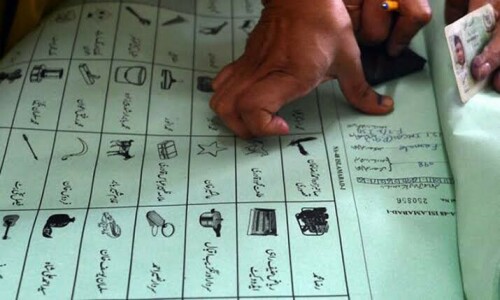UNITED NATIONS, Oct 17: A new report on the global financial crisis says that the major share of the cost of the crisis will rest on the shoulders of hundreds of millions of people who had no share in the benefits of the previous economic expansion.
“This report shows conclusively that the gap between richer and poorer households widened since the 1990s,” said Raymond Torres, Director of the ILO’s International Institute for Labour Studies which released the study on Thursday.
“The present global financial crisis is bound to make matters worse unless long-term structural reforms are adopted,” said Mr Torres, whose institute is responsible for the report entitled World of Work Report 2008: income inequalities in the age of financial globalisation.
The report noted that while some income inequality is useful in rewarding effort, talent and innovation, huge differences can be counter-productive and damaging for most economies. It said that “rising income inequality represents a danger to the social fabric.”
As economies expanded, global employment rose by 30 per cent between the early 1990s and 2007 alongside a redistribution of income away from labour, with the share of wages in total national income (GDP) declining significantly.
The largest drop in wages as a share of GDP was 13 per cent in Latin America and the Caribbean while advanced economies saw a fall of 9 per cent. At the same time workers and their families became increasingly indebted to fund housing investment and consumption in countries with unregulated financial innovation, according to the report.
The gap in income inequality is also widening between top executives and the average employee, with the chief executive officers of the 15 largest companies in the United States, for example, earning 520 times more than the average worker in 2007, up from 360 times more in 2003.
The study said that excessive income inequalities could be associated with higher crime rates, lower life-expectancy, and in the case of poor countries malnutrition and an increased likelihood of children being taken out of school to work.














































Dear visitor, the comments section is undergoing an overhaul and will return soon.